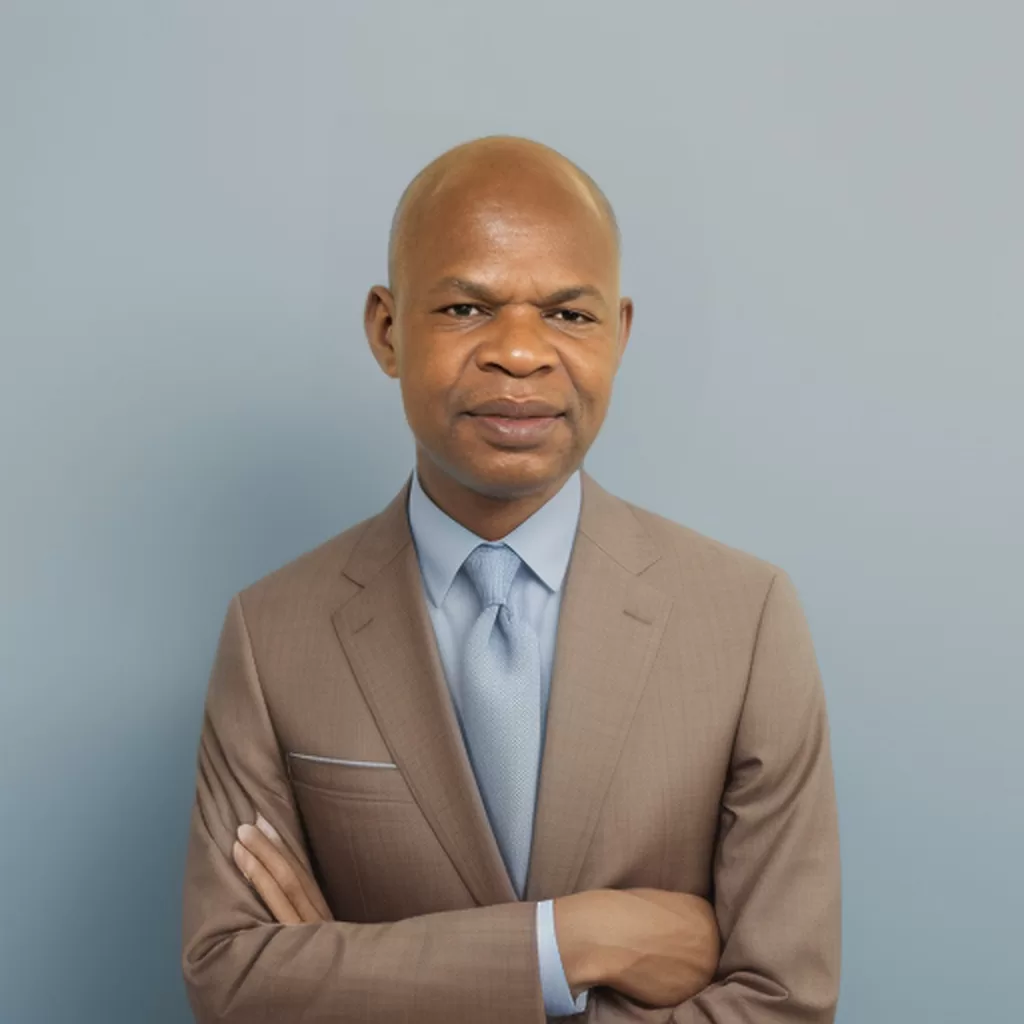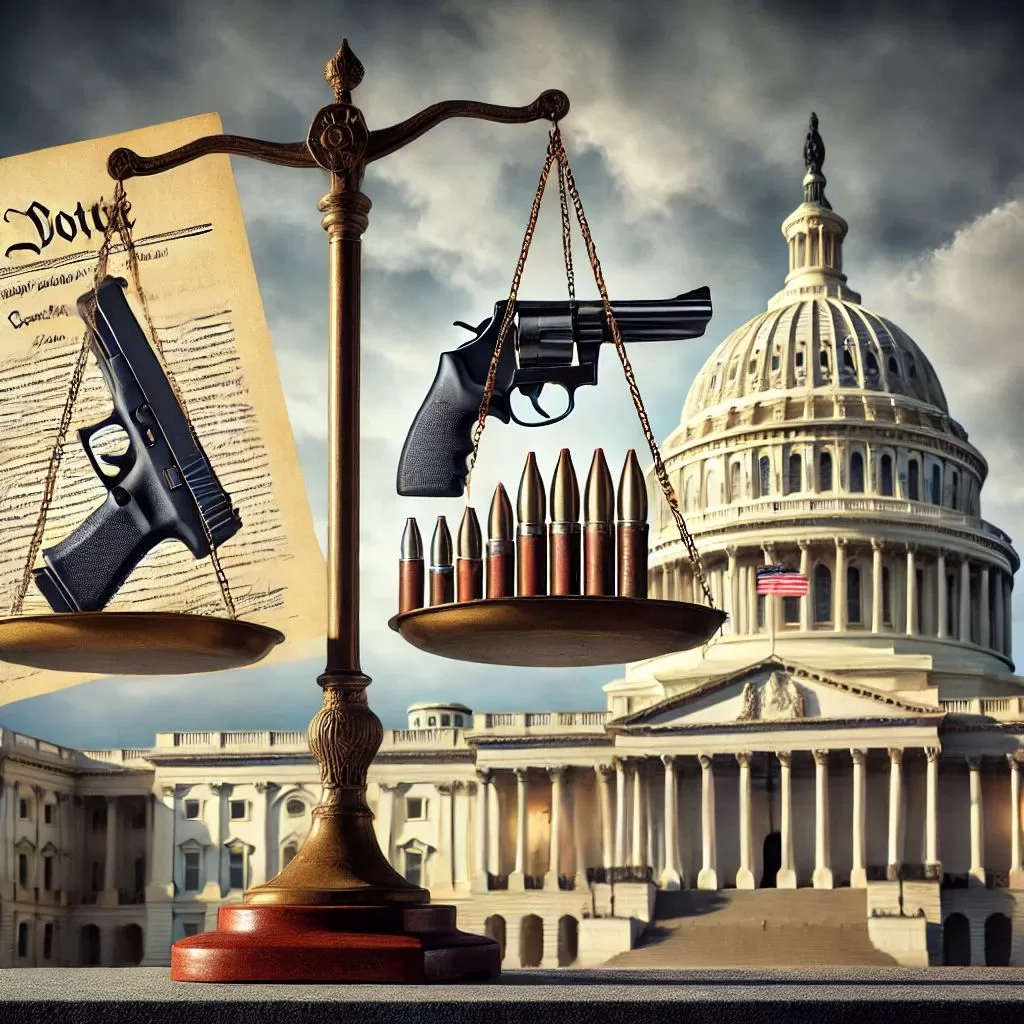Guns, Trust, and Tyranny: A Deep Dive into America's Gun Control Debate
Written by Contributing Author, Charles Wekesa

By Charles Wekesa
TAt the end of the day, it’s about finding practical solutions while also protecting our constitutional rights.

When a mass shooting occurs, it often reignites the ongoing conversation about gun violence and gun control in the country.
Such shootings, especially in schools, leave us all shaken. It’s hard not to feel the weight of sadness and fear that settles over our communities in the aftermath. As we grapple with these emotions, we find ourselves once again thrust into the complex debate surrounding gun control in America.
The Rise of Gun Violence and Media Coverage
Have you noticed how it seems like we’re hearing about mass shootings more frequently these days? It’s not just your imagination. The number of these tragic events has indeed been on the rise in recent years.
The media, understandably, gives these incidents extensive coverage, particularly when they occur in schools. The news coverage of the Parkland shooting, like many other mass shootings, evoked feelings of horror and helplessness in viewers as they witnessed the tragic loss of young lives.
This amplified coverage, while necessary for public awareness, can sometimes feel overwhelming. It’s like a constant reminder of the potential danger lurking in our everyday spaces. The emotional toll on our communities is immense, leaving many of us feeling vulnerable and searching for solutions.
The Second Amendment and Historical Context
To understand the gun control debate, we need to take a step back and look at the Second Amendment. You know, that part of our Constitution that talks about the right to bear arms. The Founding Fathers included this amendment as a safeguard against tyranny and government overreach. It’s like they were saying, “Hey, just in case the government gets too big for its britches, the people should have a way to protect themselves.”
This idea of personal protection isn’t just a relic of the past. Remember the Los Angeles riots in 1992? Korean shopkeepers used firearms to defend their businesses when law enforcement was overwhelmed. It’s a real-life example of how gun ownership can provide a sense of security in chaotic situations.
Current Gun Control Policies and Their Impact
These days, there’s a lot of talk about new gun control measures. Some folks are pushing for bans on certain types of firearms, like AR-15 rifles, and calling for stricter background checks.
On one side, gun control advocates argue that these measures could help reduce gun violence. They say, “If we can make it harder for people to get guns, maybe we can prevent some of these tragedies.”
But here’s where it gets complicated. When we look at the statistics, we see that AR-15s aren’t actually used in the majority of mass shootings. And many gun rights supporters worry that these new laws could end up hurting law-abiding citizens more than criminals.
It’s like trying to find the right balance on a seesaw. How do we address the very real problem of gun violence without stepping on the rights of responsible gun owners?
Mental Health: The Underlying Factor in Gun Violence
Now, let’s talk about something that often gets overlooked in this debate: mental health. I can’t help but wonder if we’re missing the forest for the trees here. What if the root of the problem isn’t about guns at all, but about the mental health struggles many people face?
Think about it. In many cases of gun violence, we later learn that the perpetrator was dealing with untreated mental health issues. It makes you wonder, doesn’t it? If we put more focus on addressing mental health, family instability, and economic hardship, could we make more progress in reducing violence than by just focusing on gun restrictions?
Erosion of Trust in Government: Historical Examples
Here’s where things get a bit uncomfortable. There is widespread skepticism about the government’s ability to protect our rights. And you know what? History gives us some reasons to be cautious.
Remember learning about the Tuskegee experiments in school? Or the internment of Japanese Americans during World War II? These are just a couple of examples of times when our government failed to protect the rights of its citizens. And let’s not forget about some of the questionable things our government has done in Latin American politics.
It’s experiences like these that make some folks nervous about giving the government too much control over our personal freedoms. They worry that increased gun control could be a slippery slope, potentially leading to a situation where those in power could exploit or oppress citizens who can’t defend themselves.
Comparing Gun Violence to Other Public Health Issues
Now, let’s put things in perspective for a moment. Have you ever wondered why we focus so much on guns when other things claim more lives each year? Take alcohol consumption and car accidents, for example. Both of these cause more deaths annually than guns do.
Yet, we don’t see the same level of government regulation or media attention on these issues. It makes you think, doesn’t it? Could there be political motivations behind the intense focus on gun control?
Conclusion: Balancing Safety and Freedom
As we wrap up this deep dive into the gun control debate, it’s clear that there are no easy answers. We’re all trying to find that sweet spot between personal freedom and public safety.
Maybe the solution lies in taking a more holistic approach. What if we put more emphasis on mental health support, strengthening families, and improving education? These could be powerful tools in reducing violence of all kinds, not just gun violence.
At the end of the day, it’s about finding practical solutions while also protecting our constitutional rights. It’s a delicate balance, but one that’s worth striving for. After all, isn’t that what being an American is all about? Working together to create a society that’s both free and safe for everyone.




